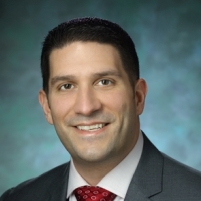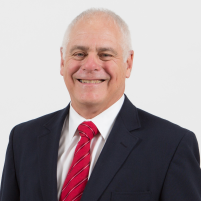|
|
| Onward and Upward: Behavioral Science Principles and Practice in Human Space Exploration |
| Sunday, May 30, 2021 |
| 9:00 AM–9:50 AM EDT |
| Online |
| Area: SCI |
| Chair: Suzanne H. Mitchell (Oregon Health & Science University) |
| CE Instructor: Suzanne H. Mitchell, Ph.D. |
| Presenting Author: PETER G. ROMA (Naval Health Research Center) |
| Abstract: Complex mission-oriented operational environments such as space exploration seem incompatible with the rigor and control that define the behavior analytic approach. Yet, the inherent risks, strategic value, and public investment in these missions require applying the best science available to enable success. This presentation will describe the parallels between behavior analytic principles and spaceflight operations, review selected historical and recent applications of behavioral science in astronauts and other teams in isolated, confined, and extreme environments, and describe opportunities for applied behavior analysis as part of integrated multidisciplinary efforts to enable future mission success in support of those who work, live, serve, and explore on the final frontier. |
| Target Audience: Scientists, lab/department/program directors, agency program administrators |
| Learning Objectives: At the conclusion of the presentation, participants will be able to: (1) define “ICE” environment(s); (2) identify three key shared features between classical laboratory behavior analysis and spaceflight operations; (3) identify three factors that affect cooperative behavior and team performance in long-duration missions. |
| |
| PETER G. ROMA (Naval Health Research Center) |
 Dr. Pete Roma is a Senior Research Psychologist in the Warfighter Performance Department, Operational Readiness & Health Directorate at the Naval Health Research Center, and former Senior Scientist and Director of the Behavioral Health & Performance Laboratory at NASA Johnson Space Center. He also holds adjunct appointments at the Johns Hopkins University School of Medicine, the University of Kansas, the University of California—Irvine, the University of Texas at Austin, and Rice University. Prior to joining NASA, he trained and worked with space research pioneer Dr. Joseph V. Brady and behavioral economics pioneer Dr. Steven R. Hursh studying individual and environmental influences on cooperative behavior in high-performing teams. Dr. Roma specializes in multidisciplinary longitudinal research and countermeasure development to support individual and team behavioral health, performance, and biopsychosocial adaptation in isolated, confined, and extreme operational environments. Through support from NASA’s Human Research Program, Space Biology Program, and Systems Maturation Team, the National Space Biomedical Research Institute (NSBRI), the US Army Medical Research and Materiel Command (MRMC), the Defense Advanced Research Projects Agency (DARPA), and the Military Operational Medicine Research Programs (MOMRP), recent and ongoing efforts include integrated investigations of human physical and behavioral health, performance, and adaptation over time in NASA’s Human Exploration Research Analog (HERA) facility, the Hawai’i Space Exploration Simulation and Analog (HI-SEAS) habitat, Concordia and Neumayer Stations in Antarctica, multiple Naval vessels, and the International Space Station. Dr. Pete Roma is a Senior Research Psychologist in the Warfighter Performance Department, Operational Readiness & Health Directorate at the Naval Health Research Center, and former Senior Scientist and Director of the Behavioral Health & Performance Laboratory at NASA Johnson Space Center. He also holds adjunct appointments at the Johns Hopkins University School of Medicine, the University of Kansas, the University of California—Irvine, the University of Texas at Austin, and Rice University. Prior to joining NASA, he trained and worked with space research pioneer Dr. Joseph V. Brady and behavioral economics pioneer Dr. Steven R. Hursh studying individual and environmental influences on cooperative behavior in high-performing teams. Dr. Roma specializes in multidisciplinary longitudinal research and countermeasure development to support individual and team behavioral health, performance, and biopsychosocial adaptation in isolated, confined, and extreme operational environments. Through support from NASA’s Human Research Program, Space Biology Program, and Systems Maturation Team, the National Space Biomedical Research Institute (NSBRI), the US Army Medical Research and Materiel Command (MRMC), the Defense Advanced Research Projects Agency (DARPA), and the Military Operational Medicine Research Programs (MOMRP), recent and ongoing efforts include integrated investigations of human physical and behavioral health, performance, and adaptation over time in NASA’s Human Exploration Research Analog (HERA) facility, the Hawai’i Space Exploration Simulation and Analog (HI-SEAS) habitat, Concordia and Neumayer Stations in Antarctica, multiple Naval vessels, and the International Space Station. |
|
| |
| |
|
|
| Teaching Tool-Skills to Fluency: The Journey From the Skinner Box to the Operating Room |
| Sunday, May 30, 2021 |
| 11:00 AM–11:50 AM EDT |
| Online |
| Area: CBM; Domain: Service Delivery |
| Chair: Amy Murrell (Murrell Psychological Services ) |
| CE Instructor: Amy Murrell, Ph.D. |
| Presenting Author: I. MARTIN LEVY (Montefiore) |
| Abstract: Time and practice are necessary for an orthopaedic resident to master the technical skills required to perform musculoskeletal surgery. Learning those skills is challenged by time constraints from work hour regulations, time pressures on both surgeon-teachers and resident-learners, and the limited tool-skills brought to the program by junior residents. The classical (apprentice) learning models used now, especially those that teach technical skills, are procedure oriented, involve emulation and self-shaping (learning) of complex activities and extend over the duration of the residency. These models can be tedious, discouraging and result in slow progress. In contrast, learning methods that employ positive operant learning can be reliable, quick, and motivating.
Operant learning is based on the fact that a behavior is more likely to occur if it is reinforced. Reinforcers used to mark the achievement of a task include acoustic stimuli or judgment-free communication and have been successfully used in a variety of human endeavors. Reinforcement, deliberate practice, and repetition let the learner rapidly progress from cognitive awareness of a skill to fluency of performance. For the learner, repetition is tolerated because the process is motivating (not unlike video games). Key to the success of this method is that complex skills (in this case the tool-skills) are analyzed and broken up into simpler skills, or “tasks,” and when learned to fluency, can be linked back together to form the complex skill. The skill can then be performed in any environment with an expectation of success.
However, to accomplish this, learning platforms need to be available that: 1) emulate the tool-skill to be learned, 2) tolerate high repetition learning and failure and 3) are available at a cost that is not prohibitive. Increasingly, surgical skills education is moving to the laboratory where residents can practice on models, cadavers and/or simulators to better prepare them for their OR experience. Unfortunately, the models used are often complex, procedurally based, and expensive, making it difficult to achieve individual learning goals and allow for the degree of repetition and deliberate practice necessary to achieve fluency.
For a skill to be fluent it must be able to be executed at the speed required by the environment it is to be used in. To build a fluent, complex skill, fluent, component (foundation) skills must be built first. This means, teach the tool-skills before you teach the procedures. It was our goal to design an innovative and inexpensive modular teaching program that allowed for meaningful repetition to achieve fluency with critical orthopaedic tools. This meant we needed to design and validate creative and challenging learning platforms that allowed for: 1) detailed task analysis, 2) use of positive operant learning methodologies, 3) meaningful repetition because they were cost sensitive, and 4) could be tolerated by both the learner and teacher, ultimately resulting in fluent tool-skills acquired by the learner.
This presentation describes why we designed it, the design details, and how we assessed our results so that these methods could be used in a variety of teaching environments. |
| Instruction Level: Intermediate |
| Target Audience: Board certified behavior analysts; licensed psychologists; graduate students. |
| Learning Objectives: At the conclusion of the presentation, participants will be able to describe the development of a task-driven operant learning program that teaches orthopaedic surgery residents foundational tool-skills to fluency. |
| |
| I. MARTIN LEVY (Montefiore) |
 Dr. I. Martin Levy is a practicing orthopaedic surgeon specializing in Sports Medicine at Montefiore Medical Center where he is a Clinical Professor and Program Director in the Department of Orthopaedic Surgery. Along with treating patients, he has been teaching and conducting research in orthopaedic surgery for more than 35 years. While his earlier research focused on soft tissue biomechanics and injury epidemiology, more recently he has concentrated on optimizing the surgical skills of orthopaedic surgery residents. Using operant learning methodologies, he has created a surgical skills program for teaching the behaviors needed to use orthopaedic tools fluently. Dr. I. Martin Levy is a practicing orthopaedic surgeon specializing in Sports Medicine at Montefiore Medical Center where he is a Clinical Professor and Program Director in the Department of Orthopaedic Surgery. Along with treating patients, he has been teaching and conducting research in orthopaedic surgery for more than 35 years. While his earlier research focused on soft tissue biomechanics and injury epidemiology, more recently he has concentrated on optimizing the surgical skills of orthopaedic surgery residents. Using operant learning methodologies, he has created a surgical skills program for teaching the behaviors needed to use orthopaedic tools fluently. |
|
| |
| |
|
|
| The Fiction of Memory |
| Sunday, May 30, 2021 |
| 3:00 PM–3:50 PM EDT |
| Online |
| Area: SCI; Domain: Applied Research |
| Chair: Martha Pelaez (Florida International University) |
| CE Instructor: Martha Pelaez, Ph.D. |
| Presenting Author: ELIZABETH LOFTUS (University of California at Irvine) |
| Abstract: For several decades, I have been manufacturing memories in unsuspecting minds. Sometimes these techniques change details of events that someone actually experienced. Other times, the techniques create entire memories of events that never happened: they create “rich false memories.” Collectively, this work shows people can be led to believe they did things that would have been rather implausible. They can be led to falsely believe they had experiences that would have been emotional or traumatic had they actually happened.
False memories, like true ones, also have consequences for people—affecting their later thoughts, intentions, and behaviors. Can we tell true memories from false ones? In several studies, I created false memories in the minds of people, compared them to true memories, and discovered that once planted, those false memories look very much like true memories: they have similar behavioral characteristics, emotionality, and neural signatures. Considered as a whole, these findings raise important questions: If false memories can be so readily planted in the mind, do we need to think about “regulating” this mind technology? And what do these pseudomemories say about the nature of memory itself? |
| Instruction Level: Intermediate |
| Target Audience: Board certified behavior analysts; licensed psychologists; graduate students. |
| Learning Objectives: At the conclusion of the presentation, participants will be able to: (1)describe some methods of studying false memories in psychological research; (2) discuss differences (or lack of) between true memories and false memories; (3) discuss implications of false memory research for psychotherapy, interrogations, and other aspects of life. |
| |
| ELIZABETH LOFTUS (University of California at Irvine) |
 Elizabeth Loftus is Distinguished Professor at the University of California - Irvine. She holds faculty positions in the Department of Psychological Science; the Department of Criminology, Law & Society, and the School of Law. She received her Ph.D. in Psychology from Stanford University. Since then, she has published over 20 books and over 600 scientific articles. Loftus's research has focused on the malleability of human memory. She has been recognized for her research with seven honorary doctorates and election to numerous prestigious societies, including the National Academy of Sciences. She is past president of the Association for Psychological Science, the Western Psychological Association, and the American Psychology-Law Society. Loftus’s memory research has led to her being called as an expert witness or consultant in hundreds of cases. Some of the more well-known cases include the McMartin PreSchool Molestation case, the Hillside Strangler, the Abscam cases, the trial of the officers accused in the Rodney King beating, the Menendez brothers, the Bosnian War trials in the Hague, the Oklahoma Bombing case, and litigation involving Michael Jackson, Martha Stewart, Scooter Libby, Oliver North, Bill Cosby, Harvey Weinstein, and the Duke University Lacrosse players. Elizabeth Loftus is Distinguished Professor at the University of California - Irvine. She holds faculty positions in the Department of Psychological Science; the Department of Criminology, Law & Society, and the School of Law. She received her Ph.D. in Psychology from Stanford University. Since then, she has published over 20 books and over 600 scientific articles. Loftus's research has focused on the malleability of human memory. She has been recognized for her research with seven honorary doctorates and election to numerous prestigious societies, including the National Academy of Sciences. She is past president of the Association for Psychological Science, the Western Psychological Association, and the American Psychology-Law Society. Loftus’s memory research has led to her being called as an expert witness or consultant in hundreds of cases. Some of the more well-known cases include the McMartin PreSchool Molestation case, the Hillside Strangler, the Abscam cases, the trial of the officers accused in the Rodney King beating, the Menendez brothers, the Bosnian War trials in the Hague, the Oklahoma Bombing case, and litigation involving Michael Jackson, Martha Stewart, Scooter Libby, Oliver North, Bill Cosby, Harvey Weinstein, and the Duke University Lacrosse players. |
|
| |